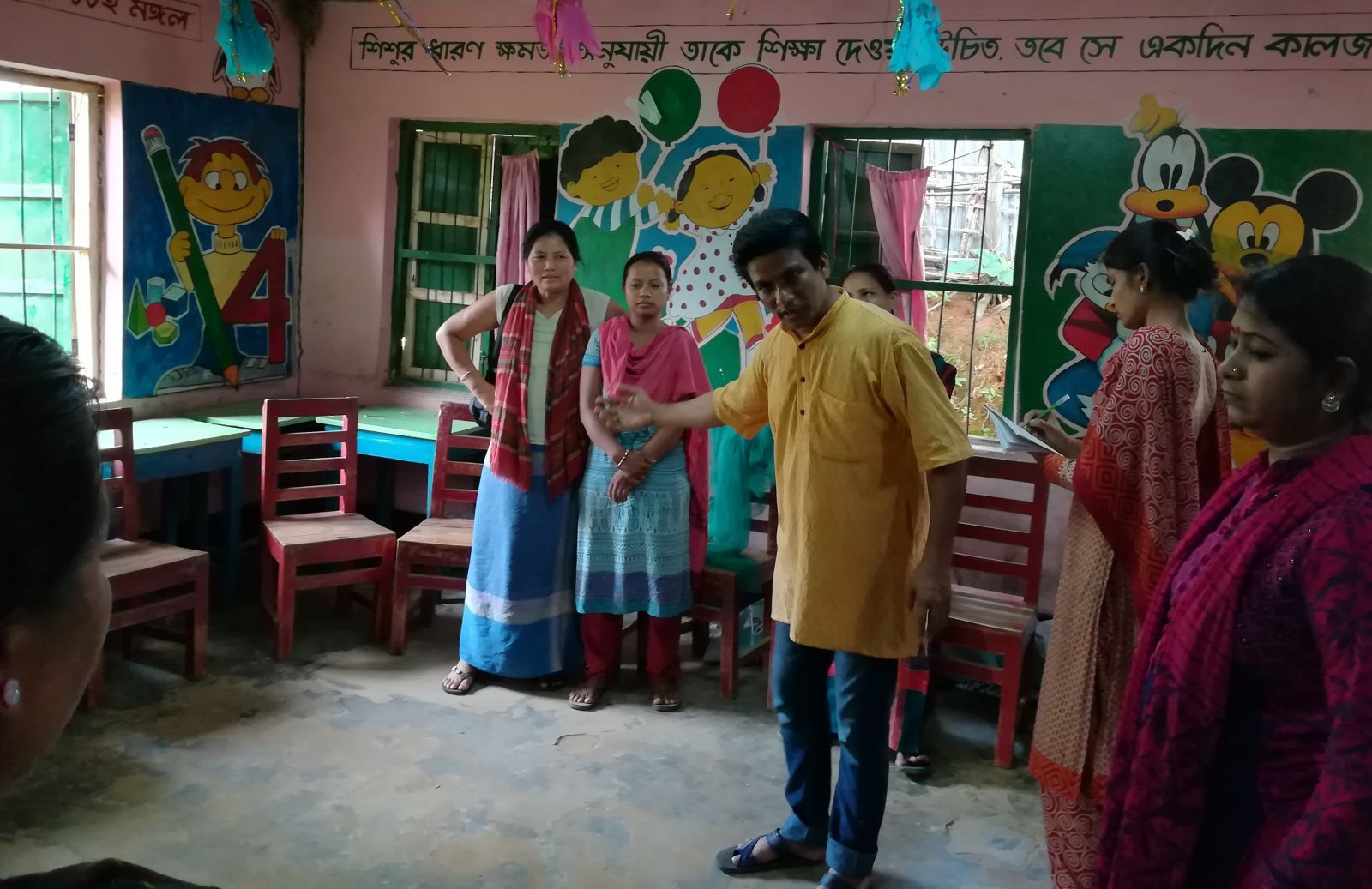“If I Know Myself, I Can Plant Something”
A humanitarian aid worker with 12 years of experience preparing communities to natural disasters in Bangladesh, Obaidul Islam Munna joined the Talent Development Programme in 2016. His line manager was participating in coaching sessions and this is what inspired him to apply. “That’s how my journey started,” says Munna, who besides his day-to-day work is also involved in a series of community theatre projects involving youth volunteers in order to raise awareness about disaster preparedness.

The programme started with a five-day training session. “It allowed me to explore myself, in-depth, something that we do not have the time to do in our busy daily lives,” recalls Munna. “It was a kind of diagnosis. We looked at our capacities and our strengths, but also the way we process our emotions. If I know myself, I can plant something.”
The Seven Habits of Highly Effective People were particularly useful, as they are of application across cultures and organisations. Proactivity is what stood out for Munna: “For many reasons, we often don’t express what we want to say and hide ourselves. This sometimes means that we miss opportunities. Now if I feel I should say something, I say it. This has been a win-win not only in my professional life, but also in my personal life.”
Having worked with major humanitarian actors such as ActionAid, Concern Worldwide and Oxfam in the field of disaster preparedness and response, the training session was an eye-opening experience that made him think in a new way. He is committed to continue. “
Thanks to a series of individual coaching sessions and his involvement in a theatre group Munna transferred his newly acquired knowledge in the work place. My coach, Uma Narayanan, helped me keep the focus on my objectives and set up an action plan. “It was an inspiring process, and I noticed that I was making progress every day.” During his coaching sessions he felt relaxed, they even had a stress relief effect. “She helped me look forward in the face of challenging situations.”
Uma says that coaching Munna, using the Seven Habits of Highly Effective People, has given her the opportunity to revisit and practice some of these habits. “I wanted to experience the change in my own habits while supporting Munna in his own journey of change,” she says.
Asked what he would recommend for the future of Talent Development Project, Munna said that he would suggest that an individual or group be assigned to work on a real-life task or event. It would allow them to practice and enhance their leadership skills.
Now a certified Talent Development Project participant, Munna is committed to continue his journey and to disseminate his newly acquired knowledge and skills in the local context, including with the young volunteers who are involved in disaster response preparedness and the theatre projects to provide psychosocial care support for disaster survivors. “I consider my certificate as a commitment, as a responsibility to continue looking inward and improve my way of working.”
The Talent Development project is one of the 14 projects funded by DFID and the Start Network under the Disasters and Emergencies Preparedness Programme (DEPP). It was set up in November 2014 by a consortium of four agencies (the CHS Alliance, Oxfam GB and Relief International, led by Save the Children UK), working with implementing agencies (Bioforce, MzN, RedR, social enterprise Leadership for Humanitarians, and a number of specialist HR consultants.
After three years, this ambitious project, which sought to build the capacity and competencies of over 1,000 humanitarian workers in Bangladesh, DRC, Ethiopia, Jordan and Kenya is almost completed. This project also supported the DEPP initiative in its vision of transforming the humanitarian sector through building stronger networks and coalitions, and sharing learning on how best to improve national staff capacity in order to respond to emergencies better and quicker, and save more lives.
